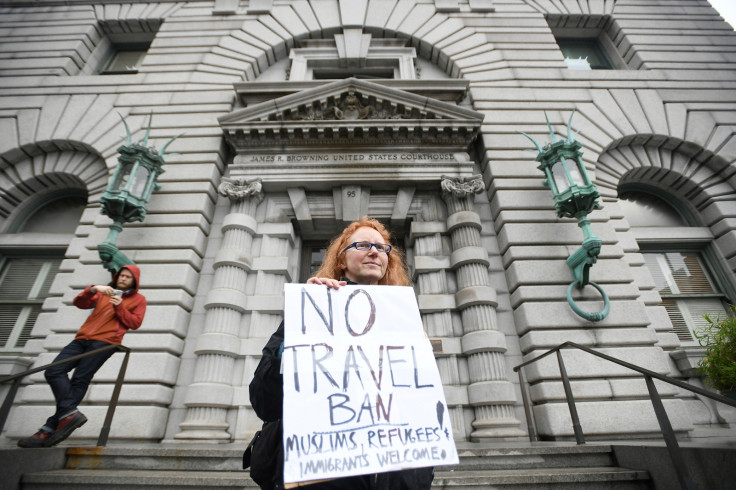Trump's travel ban: Court of appeals hammers away at arguments
KEY POINTS
- Judges in San Francisco are grilling both sides and are expected to make a decision shortly.
- Court decision likely later this week.
A panel of appeals court judges has been hammering away at the arguments underpinning President Donald Trump's controversial travel ban.
The 9th Circuit Court of Appeals in San Francisco is the latest legal body to consider the ban, which affects nationals travelling from seven Muslim-majority countries.
Trump's administration has asked the court to restore the order, which was halted at the lower courts, in an ongoing battle that will likely escalate all the way to the Supreme Court.
During the hearing on 7 February, Justice Department lawyer August Flentje, on behalf on Trump, argued that the president alone has power to decide who can enter and stay in the United States.
He argued it was a matter of national security for the president to be able to decide. However, he was not able to provide any evidence of where terrorism had been prevented.
Flentje said it was a "fast-moving case" and could not provide evidence – despite the fact that it was his team that called the emergency hearing.
The judges – two Democratic appointees and one Republican – seemed unconvinced by the argument. They repeatedly questioned Flentje on why states should not be able to sue the US government on behalf of their residents, as is the case in this court battle.
Washington State is suing the government on behalf of the families broken up by the ban, as well as employers and universities that have been adversely affected.
Noah Purcell, solicitor general for the state of Washington, began his argument by urging the court to serve "as a check on executive abuses".
"The president is asking this court to abdicate that role here," Purcell said, reported Reuters. "The court should decline that invitation."
However, he too received tough questioning and was asked what evidence supported his claim that the ban is discriminatory when it only affects roughly 15% of the world's Muslim population.
In response, Purcell said there was a clear intent to target Muslims, based on Trump's campaign statements, as well as reports that former New York Mayor Rudy Giuliani was approached by Trump and asked how to make a "Muslim ban" legal.
Trump said on Tuesday that he cannot believe his administration has to fight in the courts to uphold his refugee and immigration ban, a policy he says will protect the country.
The court is not expected to rule immediately, with a decision more likely to come later this week, court spokesman David Madden said.

© Copyright IBTimes 2025. All rights reserved.





















